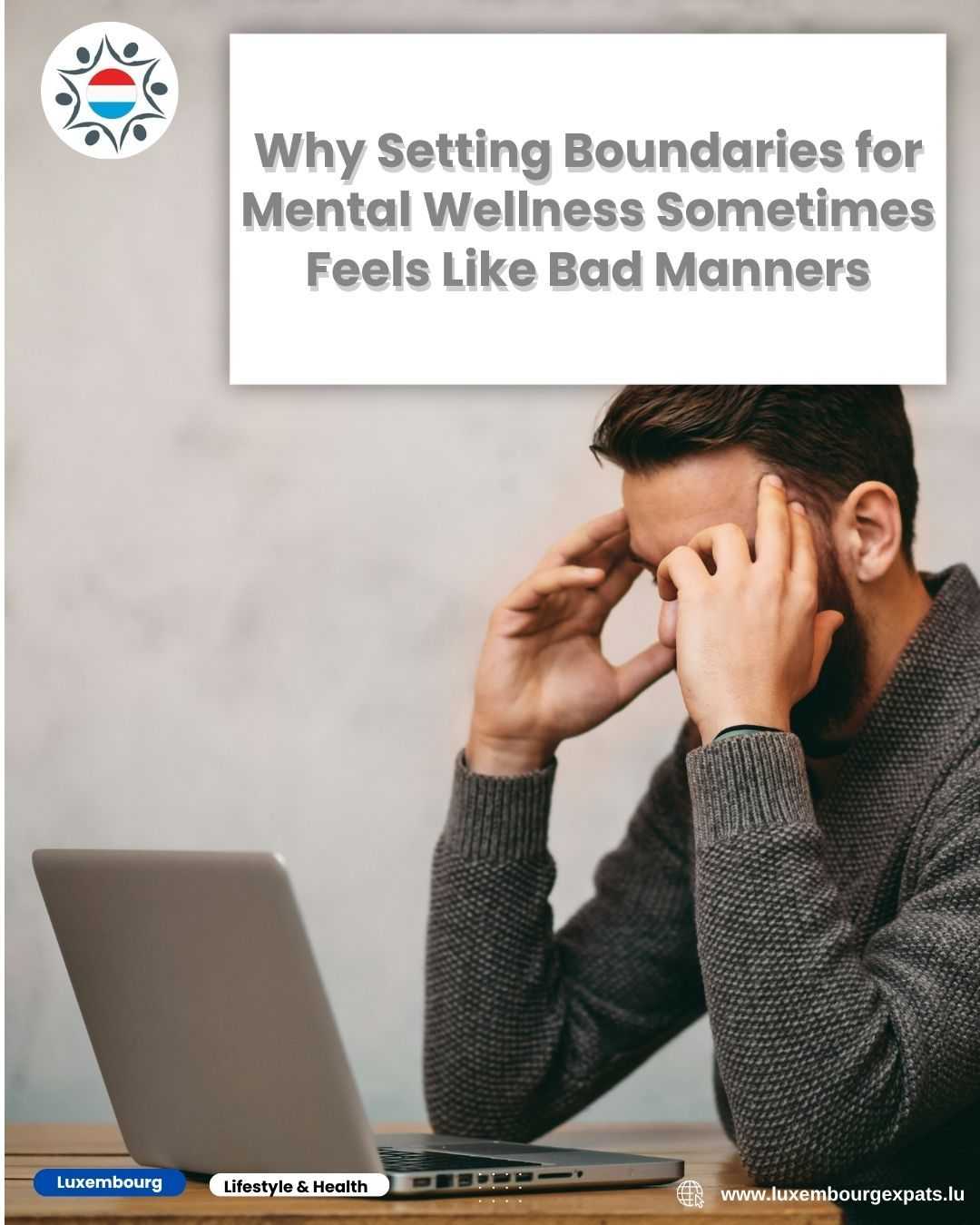The Boundary Revolution Nobody Saw Coming: How Prioritizing Mental Health Is Redefining Social Norms
LuxembourgPosted on 21 July 2025 by TeamA quiet but powerful shift is underway in how people manage their relationships, time, and energy—one that challenges long-standing expectations about availability and self-sacrifice. Mentally healthy individuals are embracing a new philosophy: saying no to others is a vital part of saying yes to themselves. Far from selfishness, this approach reflects a deep understanding of personal limits and the need for self-care, yet it often gets misunderstood as bad manners or rejection.
This “boundary revolution” reveals that constantly being available and agreeable can lead to burnout, resentment, and diminished capacity to genuinely support others. Those who adopt clearer boundaries recognize that trying to be everything to everyone ultimately means losing themselves. By prioritizing rest, solitude, and selective commitments, they preserve their emotional and mental resources.
However, this change in behaviour disrupts social norms. Friends, family, and colleagues accustomed to unlimited availability often interpret the new boundaries as abandonment or selfishness. The willingness to decline invitations, step back from emotional labour, or say no without elaborate excuses unsettles those who see self-sacrifice as a measure of care and loyalty.
Mentally healthy people prioritize sleep, alone time, and manageable social calendars. They no longer respond instantly to every message or volunteer for every request. This selective availability isn’t antisocial—it’s a realistic acknowledgment that emotional and mental energy is finite. Instead of spreading themselves thin, they focus on cultivating deeper, more meaningful connections by showing up fully where it truly matters.
One major obstacle to embracing these boundaries is guilt. Many continue to overcommit because they fear disappointing others or being labelled selfish more than they fear personal burnout. Those who have worked through the guilt understand that setting limits occasionally upsets people—but self-preservation is essential for sustainable compassion. They know they can better support others only if they first care for themselves.
This recalibration extends beyond personal life to work relationships and community involvement. Mentally healthy individuals stop being automatic crisis counsellors or emotional dumping grounds. Their refusal to overextend disrupts the implicit social contract of mutual overcommitment, highlighting that constant availability is neither necessary nor noble.
The consequences are profound: some friendships and even family ties change or fade as unhealthy patterns of dependency dissolve. Yet paradoxically, those relationships that endure often strengthen, grounded in authenticity and balance rather than self-sacrifice. The “selfishness” of boundary-setting becomes a foundation for genuine intimacy and mutual respect.
Moreover, this new approach to mental health contradicts assumptions about productivity. By doing less, mentally healthy people often accomplish more. They channel their energy into meaningful goals and prioritize restorative rest, boosting creativity and effectiveness. Their calm refusal to participate in exhaustion-fuelled busyness challenges cultural ideals that equate sacrifice with virtue.
This boundary revolution signals a broader cultural shift toward redefining what it means to care for oneself and others. While it may feel uncomfortable for those used to traditional norms, the movement toward mental health–driven boundaries offer a pathway to resilience, authenticity, and deeper human connection—changing everything we thought we knew about kindness and self-respect.
Join the exclusive network for expats in Luxembourg luxembourgexpats.lu
I am your contact
Team
Chat









